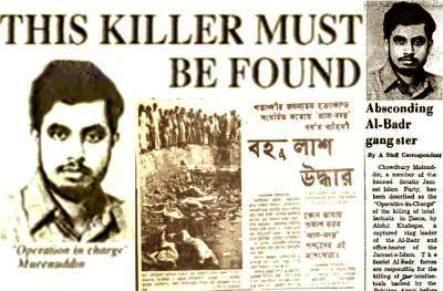Nadia Choudhury
Augusto Pinochet (the Chilean dictator), Rifaat Al-Assad (the butcher of Hama), Pervez Musharraf (Pakistan’s military leader), Phillip Machemedze (the Mugabe henchman), Mohamed Salim (the Darfur militiaman), Milan Sarcevic (the Serbian soldier), Alexander Huryn (a Nazi guard), Chowdhury Mueen Uddin (a Bangladesh war criminal) are just some of the many alleged war criminals who have enjoyed glamorous lives in the UK. These are people who have been charged with brutally murdering people in their homelands, embezzlements for their own enrichment and gross violations of human rights. So then why are these people afforded cushioned lifestyles, being established as local leaders and living in high-end properties in Britain?
After the first and second World War, it became imperative to prosecute individuals responsible for crimes so serious that they needed to be called “against humanity”. It was the three main Allied Powers — United Kingdom, United States and the USSR that issued a joint statement that the German war criminals should be judged and punished. War crimes were defined under the auspices of the Nuremberg Trials after World War II, based on the definition in the London Charter or Nuremburg Charter. ‘Crimes against humanity’ and ‘crimes against peace’ were later incorporated into the UN Charter. Subsequently the Rome statute came to be drafted for the creation of a supranational and international tribunal to try war criminals — the International Criminal Court (ICC) in Rome. Article 8 of the Rome Statute of the ICC defines ‘war crimes’ that includes wilful killing, torture or inhuman treatment and wilfully causing great suffering, or serious injury to body or health. The court has jurisdiction in respect of war crimes committed as part of a plan or policy or as part of a large-scale commission of such crimes.
The Bangladesh International Crimes Tribunal (ICT) was established by ratification of the Rome Statute of the ICC Bangladesh, in an audacious and applaudable move, became the first state party in South Asia to do so. After Bangladesh’s bloody war for independence in 1971, when an estimated three million people were killed and 200,000 women were raped, many of the offenders fled to the United Kingdom. Ghulam Azam is one of them having lived in the UK in exile. Since returning, he has been sentenced to 90 years in jail by the ICT on charges that include genocide, murder, abduction and arson.
Chowdury Mueen-Uddin was sentenced in absentia to death after being found guilty of murdering 18 leading intellectuals including nine university professors, six journalists and three physicians in December 1971. Bangladesh’s national police force which is coordinating the ICT investigation reported such crimes as gouging an eye doctor’s eye out before killing him, cutting a cardiologist’s heart out and cutting a female journalist’s breasts off before killing her. Chowdhury Mueen-Uddin was a leading figure working with the Islamic Militia Al-Badr when it came to killing Bangladeshi activists. It is this inhumane beast that later went on to become director of Muslim Spiritual Care Provision in the NHS, the vice-chairman of the East London Mosque and London Muslim Centre and was also involved in setting up the Muslim Council of Britain making him one of Britain’s most influential Muslim leaders.
Britain cannot hide behind human rights or play innocent in the face of protecting notorious war criminals. The line between refugees and offenders of serious crimes cannot be allowed to be blurred. Independent countries must be allowed to implement their sovereign right to try their own war criminals within their own jurisdiction. When Edward Snowden was granted asylum in Russia, it was considered ‘a slap in the face’ to America and yet his crimes did not involve killing a single person. Then why is it okay to slap the three million Bangladeshi lost souls and their families in the face by protecting these barbaric murderers? Why is it okay to deny justice to the many victims across the globe? Has their conscience become so duped by the wealthier and more influential powers that they are failing to see they are harvesting terrorists in their own backyards? One must dig deeper and contemplate the dubious incentives of British authorities. They must stop interfering with the justice system of other nations. The democratic values they preach must be respected by allowing the people of a nation to dictate their own faith.
* From January 2012 to April 2013, a Home Office research revealed nearly 800 individuals living in the UK were suspected of war crimes.
Source: Bd news24

